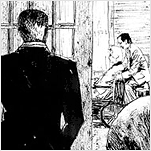SHATTERED DREAMS
The Failure of the Peace Process
in the Middle East, 1995-2002.
By Charles Enderlin.
Translated by Susan Fairfield.
Illustrated. 458 pp. New York:
Other Press. $28.
I once asked King Hussein of Jordan whether he considered Zionism legitimate. Did he accept that there was any historical basis to the Jews' claim to a portion of Palestine as their homeland? He looked at me as if I were from Mars and ducked the question. Later he told a Jordanian colleague that only a Jew could have posed such a strange question. Perhaps by the time of his death in 1999 he had softened his view. But his reaction still exemplifies that of the vast majority of Arabs today.
Even the many who favor peace with Israel under certain conditions accept its reality but not its legitimacy. On the Israeli side there are similar denials. Ask most Israelis about Palestinian nationalism or the centrality of Jerusalem to Palestinian history and you will get a dismissive wave of the hand and a lecture asserting that there was no Palestinian identity until the Arabs invented it as a weapon to wield against Israel. While covering the conflict, I was struck by how fundamental a gap these perceptions represented. But when the Oslo peace framework was signed by Israeli and Palestinian negotiators in 1993, I started to reconsider. When I asked officials on both sides to reconcile their contradictory versions of history, they would do that dismissive hand wave and say the past was no longer their concern. I wanted to believe them.
Following the failure of the Camp David peace summit in 2000 and since the outbreak of the second Palestinian intifada shortly thereafter, it seemed clear that the process could never succeed without a more fundamental reassessment of competing versions of the past. Reading ''Shattered Dreams,'' by Charles Enderlin, reaffirms that concern. Until the two sides teach their children what it means to have stood in the shoes of their adversaries -- something the Israelis began doing but stopped, and something the Palestinians have never done -- the chance of real peace remains slim.
''Shattered Dreams'' is a deeply reported and scrupulous account of seven key years in the history of the conflict -- from the assassination of Prime Minister Yitzhak Rabin in November of 1995 to the first election of Ariel Sharon a little over two years ago. Enderlin has been the Jerusalem bureau chief for one of French television's main stations for the past 13 years. He persuaded a number of officials to allow him to interview them on videotape during their negotiations on condition that he not broadcast the tapes before the end of 2001. Later, he interviewed them again, and persuaded many to share notes from secret meetings. From these he produced a documentary that was shown in numerous countries, and on PBS last summer.
This book is a written record of those interviews and notes. When it appeared last year in France, it was a best seller. Fortunately, it has now been translated into English by Susan Fairfield. Unfortunately, ''Shattered Dreams'' has a slightly amateurish feel. It is written entirely in the present tense, which becomes irritating. The story gushes forward with little context or analysis. But this also proves to be a kind of virtue. As Enderlin moves from event to notes to taped interview, you have the refreshing sense that you are not being spun. He is simply seeking to represent reality in its complexity -- the personalities, the accidents of fate, the sins of omission and commission. In fact, despite the book's narrative flaws, it offers the most complete and balanced picture yet of the failure of the Middle East peace process.
The accepted story in the United States is that after several years of halting negotiations, at Camp David the Israeli Prime Minister Ehud Barak offered Yasir Arafat some 90 percent of the West Bank and Gaza Strip and a reasonable deal on Jerusalem. Arafat balked, made no counteroffer and two months later gave his real response, the violent uprising, complete with suicide bombings. Enderlin's story makes clear that there is truth to this version but, by itself, it will not do. Unless you understand the way Barak ignored the Palestinians in 1999 in a failed effort to cut a deal with the Syrians first; unless you see the accelerated level of Jewish settlement building; unless you grasp the dynamic by which the Israeli right interrupted the peace process, forcing Barak to pull back, you will not have a complete picture. In this book, we learn what was offered at Camp David -- 76 percent of the West Bank -- and how it grew to 92 percent the following January before talks broke down. Errors, misjudgments, false moves and internal tensions -- Israeli, Palestinian and American -- are all part of the sad story.
- 1
- 2












